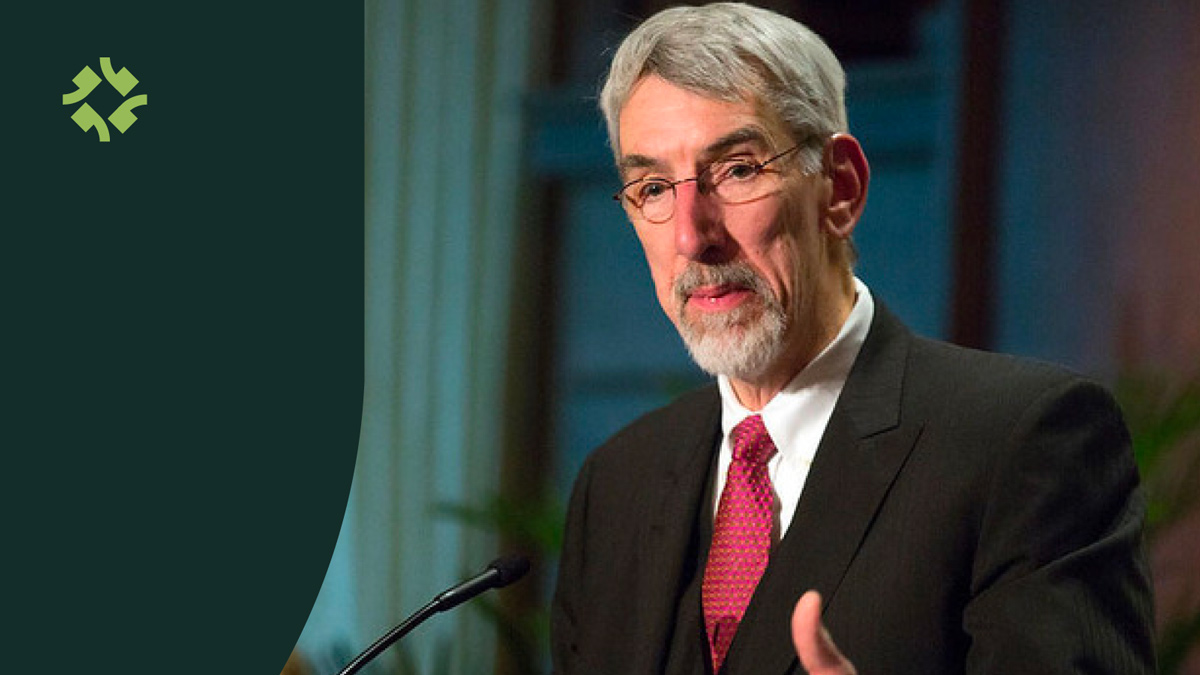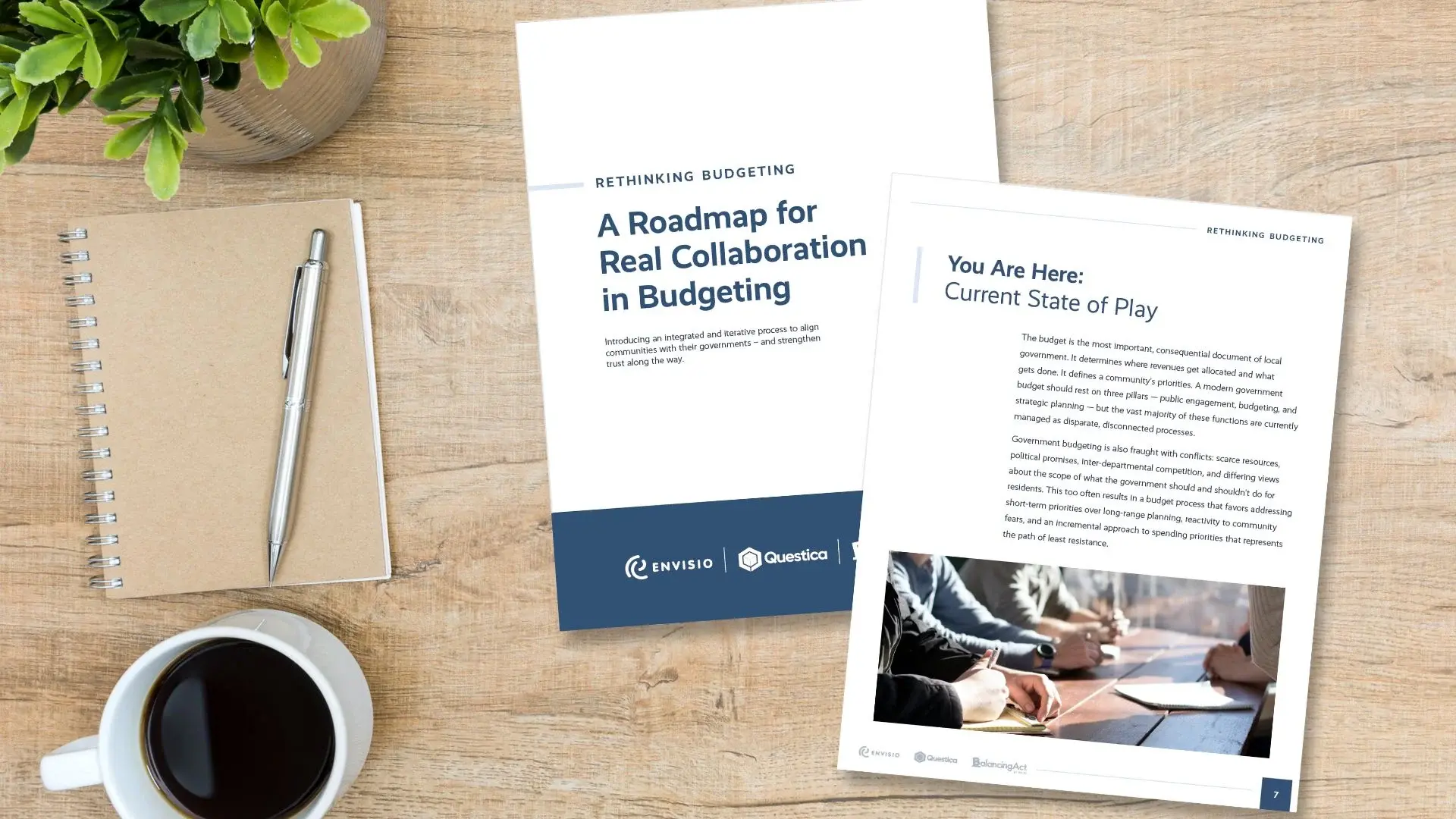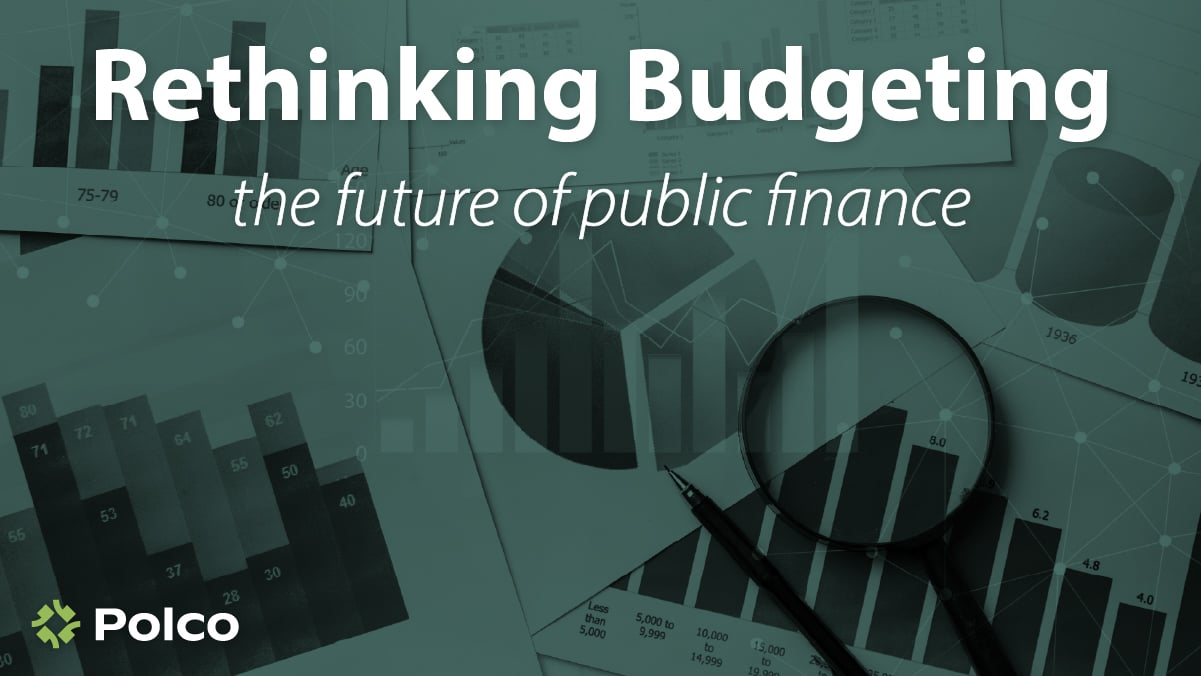Why We Need To Rethink Budgeting: Interview With Mark Funkhouser
By Polco on June 16, 2023

A successful budget process means public engagement year-round - and not just for the “crisis du jour”.
Government officials face some of the biggest budgeting challenges of all time. The pandemic fueled economic uncertainty and high inflation. Traditional budgeting strategies are not nimble enough to keep up with the big changes, which is why rethinking government budgeting is crucial today.
Jonathan Wiersma, Polco Vice President of Marketing, recently sat down with Mark Funkhouser of Funkhouser & Associates, LLC, an independent consulting firm focused on driving efficiency in local government via public-private sector alliances. Funkhouser is also a former mayor of Kansas City, Mo. The two discussed why modern-day budgeting processes are flawed - and how this can be fixed - at the 2023 GFOA Conference.
The Flaws of Budgeting – And How They Can be Fixed
JW: I'm Jonathan Wiersma with Balancing Act by Polco and I'm here with Mark Funkhouser. I'm going to ask him a few questions starting with, Mark, what does rethinking budgeting mean to you?
MF: Well, the budgeting process was starting to show a lot of cracks, starting to show some wear and tear, and needed to be revised. And then we had a pandemic, and then we had the murder of George Floyd, and the social unrest that came after that, and now, we've got inflation—and so the situation that we're in, all those things exacerbated the flaws and cracks in the budgeting process. And so in the nick of time, we're starting to rethink the budgeting process.
JW: Never let a good crisis go to waste.
MF: That's right. Yeah.
JW: Yeah, for sure.[Share] a little bit about your experience… and how we can nimble up the budgeting process to respond to changes in priorities.
MF: First of all, of course, it is not nimble. It is slow and ponderous. In many cases, it takes nearly the whole year. And so by the time the budget is actually voted on and approved, the data is out of date. So that's a big problem.
Figuring it out, using technology, for example, to be able to crunch the numbers quicker and show the results quicker and more visually, [helps people understand the budget]. For a lot of elected officials, the budget is a black box. And they wind up having a big fight about a half of percent of the budget, and the other 99 and a half percent, they have no idea. It's beyond them. And so finding ways that they see that the whole budget is a policy document that is up for discussion with regard to their agenda and their priorities is a major thing.
One other thing that completely has to happen is that the budget now seems to be completely divorced from the long-range financial plan, the financial statements.
And so what is the impact of the budget on, for example, the balance sheet? Well, there's never hardly any discussion about that. To me, it's insane. And it's one of the reasons why a lot of governments have a structural imbalance is because they keep building up liabilities without thinking about it. You know, it's as if I manage my money just with my checkbook and never look at what's in the bank.
JW: Sure, sure. Well, interesting.
We're here talking about the Rethinking Budgeting white paper that we put together with Envisio, Questica and Balancing Act. So I think you've hit on Questica with technology for crunching the numbers and Envisio for tying it to your strategic plan.
So maybe about community input, I've had a couple of conversations here at the conference already, and folks are like, why would we want to ask citizens any questions [about the budget]?... Which I thought was a funny perspective. [Share] some thoughts on when you actually ask citizens to get involved and contribute in budget decisions that are being made.
MF: Well, you have to have an ongoing conversation with citizens. It can't just be at the budget time, and it can't just be about the crisis du jour.
You have to build relationships. Now, in my company, Funkhouser and Associates, we help local governments with strategic planning. And the whole idea behind our work is a deep involvement with the residents to produce a vision and a plan that is financially sustainable.
We ask three questions. What do you want to do as a community? How can you do it effectively? How can you pay for it sustainably?
And in the right structure with technology on the one hand, with surveys and that sort of thing that people like Polco do, and then other sort of very labor-intensive workshops and so forth with different groups of people, but it's incredibly important—not just morally because it's their money, but because you need their buy-in, and their trust, and their confidence. And the community conditions that you're trying to impact are co-created by residents and the government. And you can't do it alone.
JW: Yeah, they're certainly players in the mix, right? It's not an act upon only. It was interesting, you brought to mind a quote from Carnegie… We move forward at the speed of trust, right?
MF: Exactly. That's exactly right.
Learn more about rethinking budgeting with A Roadmap to Strengthen Trust and Align Your Community with Budgeting: a white paper by Balancing Act by Polco, Questica, and Envisio that proposes an integrated approach to building effective budgeting in the modern age.
Popular posts
Sign-up for Updates
You May Also Like
These Related Stories

A Roadmap to Collaborative Local Government Budgeting

Rethinking Budgeting: Why Civic Engagement is the Future of Public Finance

